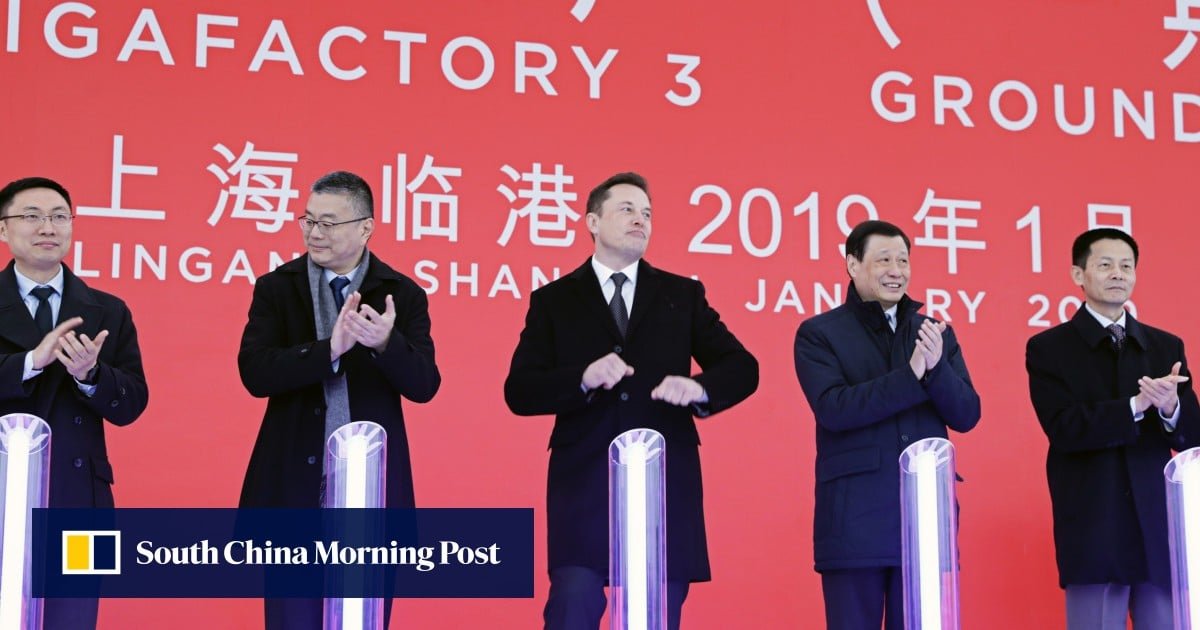China has appointed capital markets veteran Wu Qing to head the nation’s securities watchdog – a move that will place the nation’s US$8 trillion stock market under his supervision as one of several measures laid down by Beijing to blunt a downturn.
Wu, who ran the Shanghai Stock Exchange between 2016 and 2017, has been appointed chairman and party chief of the China Securities Regulatory Commission (CSRC). He succeeds Yi Huiman, who had been in the position since 2019, state media Xinhua reported on Wednesday.
Before this promotion, Wu – who holds a PhD in economics – was deputy party chief of the financial centre of Shanghai. He was entrusted to run the Shanghai Stock Exchange following a 2015 meltdown in China’s capital markets.
Before his stint in Shanghai and the city’s bourse, he had worked at the CSRC for years, overseeing fund and institutional supervision as well as risk disposal for securities companies.
It’s one of the mood-boosting measures
The appointment came after the regulator announced a set of policies to prevent a stock market rout and lift investor sentiment since last week, including fresh curbs on short selling and an intervention by state investment arm Central Huijin Investment to increase stock holdings in the market.
Beijing has laid out an ambitious plan to turn the country into a financial superpower to better support the real economy, and President Xi Jinping has said preventing and resolving financial risks must be an “ eternal theme” for the government.
The top leadership also highlighted concerns over the fragility of its financial system, particularly as China faces an increasingly turbulent geopolitical environment, grapples with a property crisis, and attempts to buoy weakened confidence across the economy, all of which have hampered a solid and sustained recovery.
“It’s one of the mood-boosting measures,” said Fu Weigang, executive director at the Shanghai Institute of Finance and Law. Fu added that, historically, Beijing would reshuffle personnel whenever there is a big stock market rout.
‘All is not well’: China’s economic outlook slammed in Rhodium Group report
‘All is not well’: China’s economic outlook slammed in Rhodium Group report
As chairman of the securities regulator, Wu faces the immediate task of restoring confidence among the nation’s 220 million individual investors, the largest such group in the world, whose wealth is facing further erosion after the prolonged decline in stocks.
China’s stock market, the world’s second-largest globally with combined market values of US$8 trillion, has seen a wipeout of about US$3 trillion in capitalisation over the past three years, as Covid lockdowns crippled production and dented consumer spending and the post-pandemic recovery falters.
Wu’s appointment comes at a critical time for China’s yuan stocks, which have rebounded from a five-year low after the government ramped up efforts to bail out the beleaguered market this week.
In the fresh package of rescue measures, the nation’s US$1.24 trillion wealth fund boosted purchases of exchange-traded funds to stabilise sentiment, and the CSRC imposed new restrictions on short-selling while vowing to ramp up a crackdown on trading misconduct, ranging from manipulations to insider trading.
The CSI 300 Index of onshore stocks rose 1 per cent on Wednesday, extending a 3.5 per cent rally for the previous day. China’s markets will be shut from Friday for the weeklong Lunar New Year holiday.
The new rescue package came after Premier Li Qiang last month urged more meaningful measures to shore up stocks. This signalled that top leaders may have already realised that further declines in stocks would jeopardise social and financial stability in the world’s second-largest economy that is grappling with high youth unemployment and geopolitical tensions.
After being appointed as Shanghai’s vice-mayor in 2018, Wu oversaw free-trade zone agencies, the planning and reform commission, as well as tax administration and contingency management.
As head of the Shanghai stock exchange, he earned a reputation for being tough on market oversight among investors, who were burned during the 2015 meltdown that wiped US$5 trillion off market values in a boom-to-bust cycle fuelled by excessive speculation and illegal margin trades.
Wu is facing the task of more reforms in China’s stock market, which still has some systemic loopholes
During his tenure, the Shanghai exchange rolled out a slew of measures to rein in excesses, strengthening the exchange’s role of monitoring unusual price movements and cracking down on trading behaviours that inflated demand for stocks.
These measures helped drive up the Shanghai Composite Index by 13 per cent by the time Wu left for his new position as vice-mayor.
“Wu is taking over the positions in a time of crisis for the stock market, and the message it delivers is that there will probably be more follow-up measures to boost the market in the short term,” said Wu Kan, an investment manager at Soochow Securities in Shanghai. “Investors certainly hope that Wu can do more to help the stock market.
“In the long run, Wu is facing the task of more reforms in China’s stock market, which still has some systemic loopholes.”


















